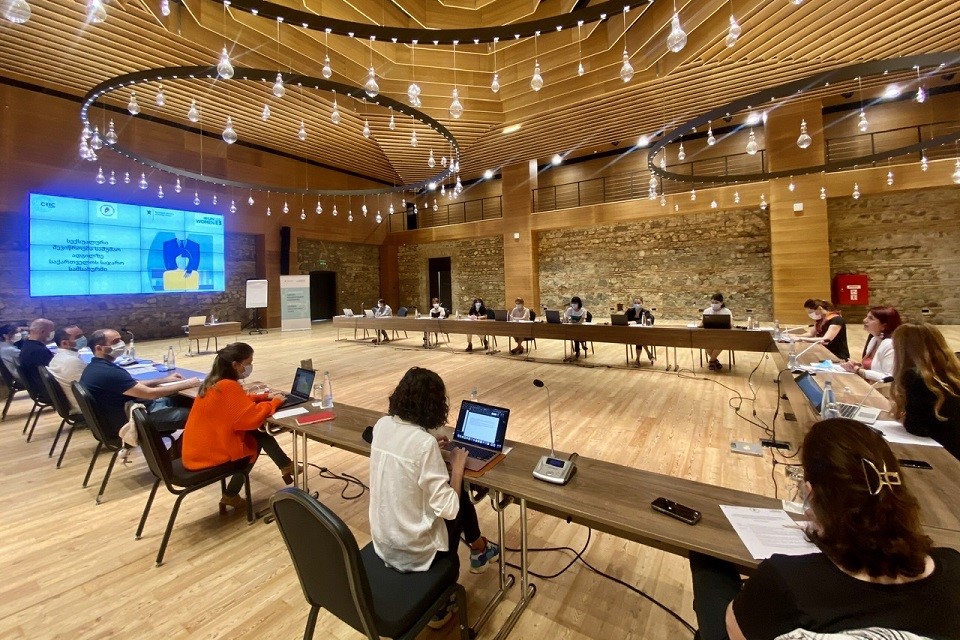The Civil Service Bureau adopts its first ever Gender Equality Strategy and Action Plan
Date:

The Georgian civil service has a significant gender imbalance, with women comprising 30 per cent of the total workforce and only 36 per cent in rank I or II managerial positions. To improve the gender balance in the civil service, the Civil Service Bureau and UN Women are deepening their partnership to create gender-responsive employment policies and promote equal representation and leadership.
On 6 June 2022, with UN Women’s technical support, the Civil Service Bureau adopted its first-ever internal Gender Equality Strategy and Action Plan. It offers a strategic vision on strengthening gender responsive public employment systems that help enable the full and effective participation and leadership of women in public service. The documents also align with recommendations from the Participatory Gender Audit, conducted by the Bureau with UN Women backing in 2020, as well as with the nationalized Sustainable Development Goal target 5.5 and indicator 5.5.2.1.
“Increasing women’s participation and leadership in the civil service represents an important priority for the Bureau. With valuable support from UN Women, we have adopted the first-ever Gender Equality Strategy and Action Plan, which will guide us in enhancing gender equality in the civil service,” said Ms. Maia Dvalishvili, Deputy Head of the Civil Service Bureau.
Within the Bureau’s Gender Equality Strategy, the key priorities include: establishing a work environment free from discrimination and harassment; strengthening family-friendly employment policies in the civil service; strengthening the capacities of female civil servants; generating evidence and collecting data to promote gender equality; and strengthening capacity and organizational accountability on gender equality and women’s empowerment.
UN Women’s partnership with the Civil Service Bureau has already yielded tangible results, including the adoption of an internal complaints mechanism on sexual harassment, and this has moreover spread to an increasing number of other government agencies.
The initiative is being carried out within the framework of the “Good Governance for Gender Equality in Georgia” (GG4GEG) project, generously funded by the Ministry of Foreign Affairs of Norway.